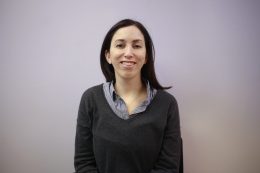
Where to go after the ban?
This was one of the haunting questions that started to pester in the back of my mind after the chaotic weekend caused by the executive order signed on Friday, banning citizens of seven nations from entering the United States.
As a Syrian archaeologist, I have been on the run for more than five years now. I left my family and loved ones in Damascus, carrying with me my Ph.D. diploma and a daunting uncertainty about the future. I was quite lucky to land in Turkey. The first few years were quite challenging — not only in terms of lecturing in a foreign language I learned in a few months — but also in terms of waking up to the news every morning to check which areas had been bombed and how many children had been killed.
In time, I had to stop counting the casualties, the missing and the displaced; I had a sense of deep shame that all of us failed humanity. I tried hard to focus on my work, aiming to alter my previous research approaches and fit them into my new reality.
I was surrounded by wonderful loving friends and colleagues. However, being a displaced academic meant that I had limited rights in terms of funding, attending conferences and workshops, depending on the borders that I can or can’t cross. In my case, getting permission to work on archaeological digs seemed to be the ultimate challenge.
Last year, when I had the chance to move to the United States, I rejoiced at the opportunity to resume my academic career and to contribute through my research and teaching to rescue the heritage of the Middle East. Sadly, the change of political scene after the presidential election dragged me back in time to my last days in Syria.
The troubling news of the ban transformed my Facebook newsfeed into a tocsin. I was not surprised by the order itself, just the haste in its implementation threw me off.
After spending a long weekend tormented by the stories of stranded refugees and splintered families, I made the decision that I wouldn’t let destructive political actions change my view of the United States as a haven of science and scholarly efforts.
I joined the faculty of Binghamton University knowing that I had to seize this opportunity and work hard to give back to both American and Middle Eastern communities. I am still ready to take action and participate on any academic or social level. From my personal perspective, if I let the hateful rhetoric stain my vision, I won’t let racism take control over my values and dehumanize me.
These days, I am still assessing the consequences of this ban on both my personal life and career, but at the same time I am able to recharge my optimistic drive thanks to the efforts of the University, colleagues and friends, who are making sure that I am not alone in this. Their collective actions and sincere love and support assisted me in going back to maintain a daily routine. I am trying to focus on my courses and my students rather than obsessing about the ambiguity of the near future.
Even though the travel ban is temporarily halted for now, my status in this country is back to the front lines. Once again, I can’t commit to projects or attend conferences. I am not even sure if I should replace the chair in my office!
Thanks to the justice system that halted the travel ban, we can still depend on the United States to protect our rights to be treated as equals. However, the shore is not yet clear. We still need the support and continuous efforts of the wonderful people and institutions that are working restlessly to guard the exceptional democracy of this country.
For my friends, who were banned from traveling and their visas were revoked: I hope morality and kindness will win this battle, and we will be free to resume our studies and be able to meet our families and loved ones sooner rather than later. I do believe that the greater good always wins.
But, before jumping on the happy, positive wave, take your time to grieve your losses. Since most of us are familiar with such challenges, it is best to support and help our friends who are in urgent need. However, there is nothing wrong with fighting alternative facts with alternative plans. Look for new opportunities over the summer instead of risking being denied to enter, stay informed but not overwhelmed and keep your chin up. You are not alone in this.
In the end, I believe that if we stay positive and vigilant, we will keep this country as our first choice of education and a second home.
Lubna Omar is a visiting assistant professor of anthropology.
To read other accounts of how the travel ban affects students and professors at Binghamton University, please follow these links (updated 2/11):
Professor Guest Column: Moral bankruptcy of Trump’s Muslim ban
Student Guest Column: No, I’m not protesting – an account from an Iranian graduate student


